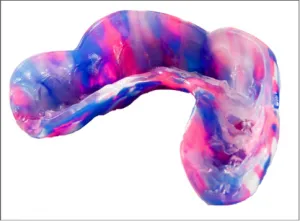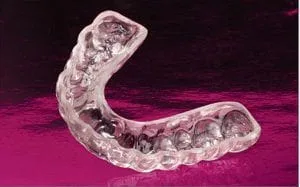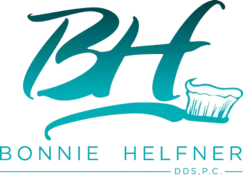Sports Guards

Upwards of 5 million teeth are knocked out in sporting activities each year. While this number is quite high, the American Dental Association reports that over 200,000 oral injuries are prevented annually due to the use of sports mouthguards.
While there are mouth guards sold by sporting good stores, some versions of these pale in comparison to mouthpieces offered by dental professionals. The problem with store-bought mouthguards is that they are already made and not tailored around the user’s teeth. As a result maximum protection is only achieved by clenching, which is bad for the teeth. Custom made guards create a precise duplication of a patient’s mouth and will be kept in place with no effort. This gives an athlete the ability to focus on the game rather than making sure the mouthguard stays in place. There are a variety of colors to choose from.
TMJ Treatments
Temporomandibular joint dysfunctions (TMJ) disorders are a cluster of various problems associated with the complex jaw joint. If you’ve had symptoms such as pain or a “clicking” sound, you’ll be happy to know that these problems are much more easily diagnosed and treated than they have been in the past. Symptoms start when the joints of the jaw and the chewing muscles don’t work properly together. TMJ stands for the temporomandibular joint and describes the anatomical space connecting your jaw to your skull. Alterations to the structures that support the joint (bones, muscles, teeth) leads to changes in the ability to open or close, muscle pain, or even ringing in the ear. Due to some type of TMJ problems resulting in serious conditions, early detection and treatment are of the utmost importance.
No one treatment can resolve TMJ disorders completely and treatment takes time to become effective. Dr. Helfner and Dr. Curro can help you have a healthier and more comfortable jaw.
Trouble with your jaw?
There is no one reason why TMJ develops. Tightening of your jaw muscles can occur from the clenching and grinding of teeth otherwise known as nocturnal bruxism. The jaw joint could also be damaged from injury, disease, or arthritis. These conditions can cause direct damage to the joint while stretching or potentially tearing the ligaments. The aforementioned clicking, popping, and locking of the jaw comes into play because the damaged ligaments can cause cartilage to be pushed out of place. Regardless of the cause, this can result in a plethora of complications, including clicking, pain, misaligned bite, trouble opening your mouth, or a grating noise when it it open.

Do you have a TMJ disorder?
- Are you aware of grinding or clenching your teeth?
- Do you wake up with sore, stiff muscles around your jaw?
- Do you have frequent headaches or neck aches?
- Does the pain get worse when you clench your teeth?
- Does stress make your clenching and pain worse?
- Does your jaw click, pop, grate, catch, or lock when you open your mouth?
- Is it difficult or painful to open your mouth, eat, or yawn?
- Have you ever injured your neck, head, or jaw?
- Have you had problems (such as arthritis) with other joints?
- Do you have teeth that no longer touch when you bite?
- Do your teeth meet differently from time to time?
- Is it hard to use your front teeth to bite or tear food?
- Are your teeth sensitive, loose, broken or worn?
- The more times you answered “yes”, the more likely it is that you have a TMJ disorder. Understanding TMJ disorders will also help you understand how they are treated.
Treatment
There are various treatment options that Dr. Helfner and Dr. Curro can utilize to improve the harmony and function of your jaw. Once an evaluation confirms a diagnosis of TMJ disorder, your dentist will determine the proper course of treatment. It is important to note that treatment always works best with a team approach of self-care joined with professional care.
The initial goals are to relieve the muscle spasm and joint pain. This is usually accomplished with a pain reliever, anti-inflammatory, or muscle relaxant.
- Resting your jaw.
- Keeping your teeth apart when you are not swallowing or eating.
- Eating soft foods.
- Applying ice and heat.
- Exercising your jaw.
- Practicing good posture.
An occlusal guard may be recommended by your dentist. The guard fits over your top or bottom teeth and helps keep your teeth apart, thereby relaxing the muscles and reducing pain. There are different types of appliances used for different purposes. A nightguard helps you stop clenching or grinding your teeth and reduces muscle tension at night and helps to protect the cartilage and joint surfaces. An anterior positioning appliance moves your jaw forward, relieves pressure on parts of your jaw and aids in disk repositioning. It may be worn 24 hours/day to help your jaw heal. An orthotic stabilization appliance is worn 24 hours/day or just at night to move your jaw into proper position. Appliances also help to protect from tooth wear.
